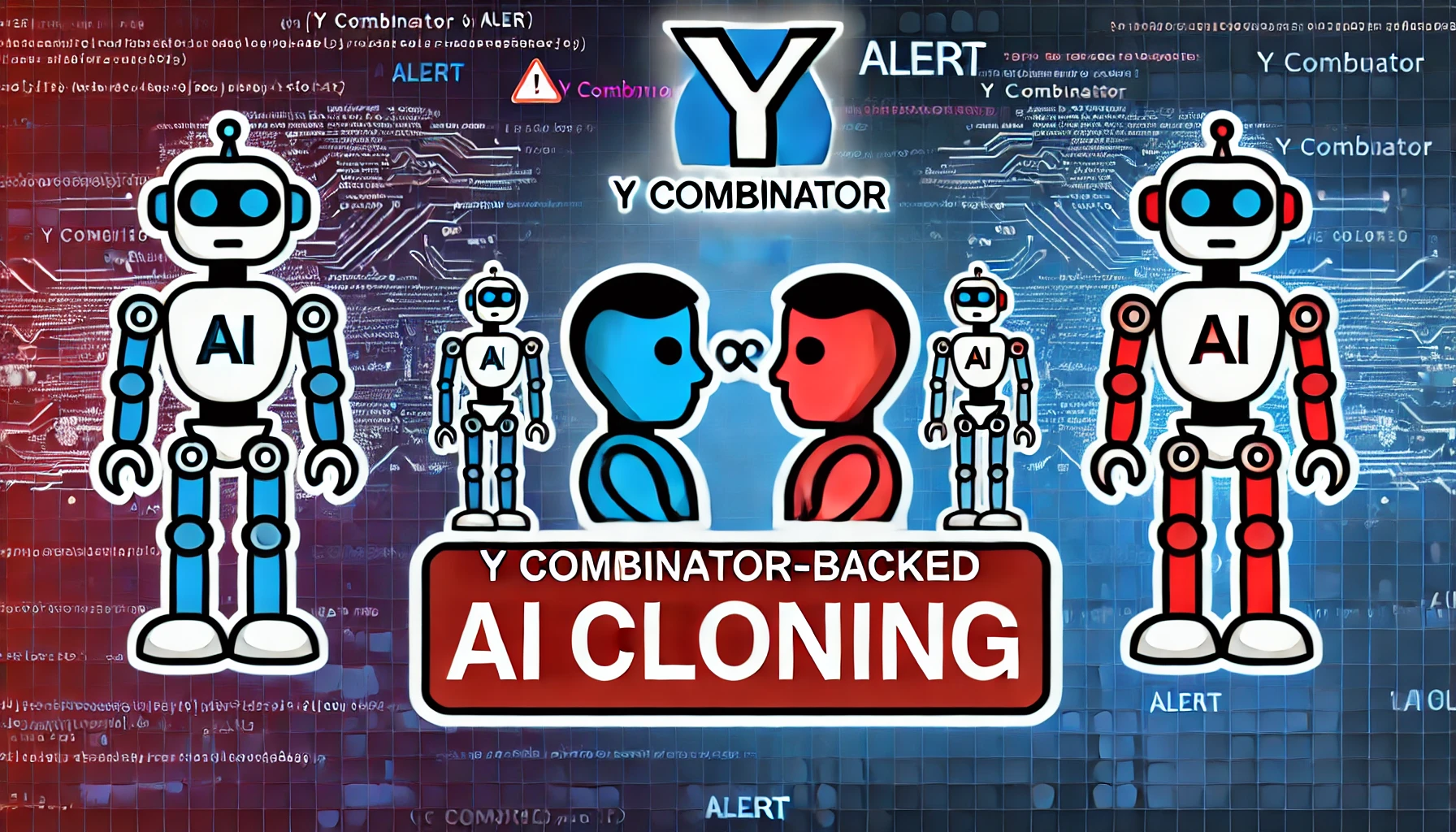Y Combinator’s Role in AI Innovation: How Venture Capital Shapes the Future of AI Startups
Y Combinator has long been a launchpad for some of the most transformative startups in the tech industry. As artificial intelligence (AI) continues to shape the future, Y Combinator startups focused on AI are at the forefront of innovation. However, with growth comes scrutiny, and Y Combinator has found itself in the middle of a controversy after backing an AI startup that admitted to cloning another. This incident has sparked debates around startup ethics in AI, AI startup cloning, and the role of venture capital AI startups.
In this blog, we’ll explore the evolution of AI-powered startups, the role of Y Combinator in fostering these companies, and the ethical challenges facing AI ventures today. We’ll also dive into the implications of open-source AI models and the rise of generative AI startups.
Y Combinator Startups: A Breeding Ground for AI Innovation
Y Combinator has helped launch over 4,000 startups since its inception, with many of its most successful alumni operating in the AI space. Known for its ability to identify promising ventures, Y Combinator has invested in a wide variety of AI-powered startups ranging from healthcare to fintech, and even creative industries(PitchBook).
The Importance of Y Combinator AI Funding
The accelerator’s investment model provides early-stage companies with capital, mentorship, and exposure, which are crucial for AI startups. Y Combinator AI funding has allowed emerging companies to explore open-source AI models and create products that push the boundaries of artificial intelligence. These investments have fueled growth in AI innovation, from generative AI startups to solutions that automate business processes(PitchBook).
However, the rapid pace of innovation brings with it challenges—chief among them being questions of ethics and originality. This is where the recent controversy surrounding AI startup cloning comes into play.
The Controversy: AI Startup Cloning and Startup Ethics in AI
In recent months, Y Combinator has been criticized for backing an AI startup that openly admitted to cloning another startup’s technology. This has raised questions about AI startup ethics and the long-term implications of cloning in the tech world. While cloning or replicating technology is not entirely new in the startup ecosystem, the AI industry faces unique challenges due to the complexity of intellectual property in machine learning models and algorithms.
Is AI Startup Cloning Ethical?
AI startup cloning occurs when one startup replicates another’s core technology or model to create a similar product. In this case, Y Combinator’s backing of a cloned startup has reignited debates about what constitutes innovation versus theft. Some argue that cloning is a byproduct of the rapid development cycles in the AI industry, where foundational technologies are often built on shared research and open-source AI models(PitchBook)(Eye Health HQ).
However, others believe that tech startup ethics should dictate stricter guidelines on what can and cannot be copied. For instance, AI models built on proprietary data should remain protected from replication unless licensed by the original creators.
The Rise of Generative AI Startups
Generative AI startups represent some of the most exciting new ventures in the tech industry. These companies are using artificial intelligence to create entirely new content, such as text, images, music, and more. Products like OpenAI’s GPT-4 have demonstrated the power of generative AI in reshaping industries, from marketing and content creation to customer service.
Y Combinator’s Generative AI Investments
Y Combinator has invested in several generative AI startups that are leading the way in developing creative and innovative applications. These startups leverage open-source AI models and proprietary technologies to deliver unique solutions to consumers and businesses alike(PitchBook).
While these technologies are revolutionizing industries, they also bring up significant ethical concerns. How should intellectual property laws evolve to address content generated by AI? Who owns the rights to AI-generated artwork or text? These are questions that venture capital AI startups and their investors will need to confront as AI continues to grow.
Open-Source AI Models: Balancing Innovation and Ethics
One of the factors that have fueled the rapid growth of AI-powered startups is the rise of open-source AI models. Open-source frameworks like TensorFlow and PyTorch have democratized AI development, allowing startups to build on existing technologies without needing to develop their own models from scratch. While this accelerates innovation, it also blurs the line between original creation and replication(All About Vision).
The Benefits and Drawbacks of Open-Source AI
The advantages of open-source AI models are clear: they allow startups to reduce development costs and time-to-market, making it easier for smaller companies to compete in a crowded space. However, this open-access environment can also lead to AI startup cloning, where one company replicates another’s model with little variation(All About Vision).
In this landscape, startup ethics in AI are more important than ever. Companies that rely on open-source models must be transparent about how they’re using these technologies and ensure they aren’t infringing on the work of others.
The Future of Venture Capital AI Startups and Tech Startup Ethics
As AI continues to evolve, the role of venture capital AI startups will become increasingly important. Investors like Y Combinator play a critical role in shaping the future of AI by deciding which companies to fund and how to navigate the complex ethical landscape that comes with this technology(PitchBook).
Moving forward, tech startup ethics will need to be at the forefront of discussions around AI. Whether it’s AI startup cloning, generative AI, or the use of open-source models, these technologies have the potential to both drive innovation and create significant ethical challenges. Venture capitalists, startup founders, and consumers alike will need to work together to ensure that the future of AI is built on a foundation of transparency, accountability, and respect for intellectual property.
The Ethical Future of AI-Powered Startups
The controversy surrounding AI startup cloning backed by Y Combinator has highlighted the growing need for ethical guidelines in the AI startup space. As AI-powered startups continue to disrupt industries, the boundaries between innovation and replication will become increasingly blurred. Y Combinator’s influence on the tech world is undeniable, but with great power comes great responsibility. Startup ethics in AI will play a crucial role in determining the future success of this industry.
Whether through the responsible use of open-source AI models or the rise of generative AI startups, the tech community must address these ethical concerns head-on. If we can create an environment that values both innovation and integrity, the future of AI will be bright.
For more insights into the latest trends in technology and innovation, visit Regent Studies to explore expert resources on AI, venture capital, and ethical business practices.




